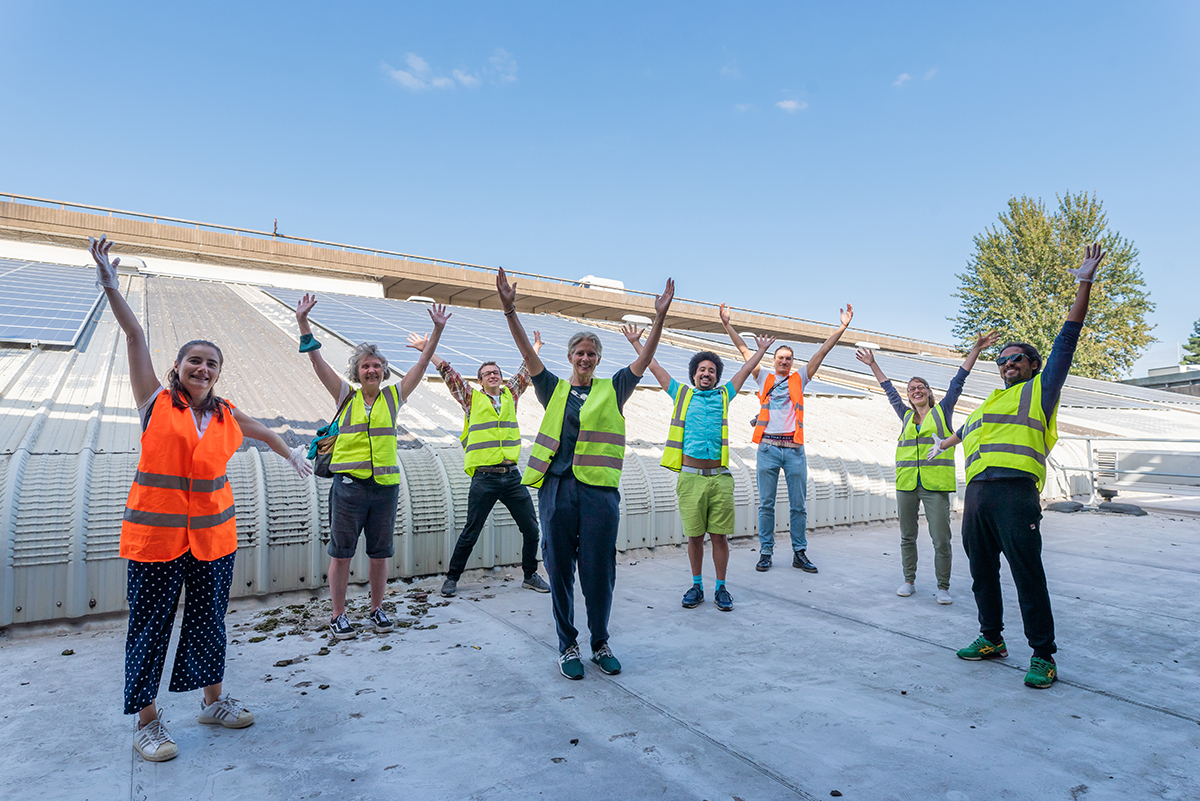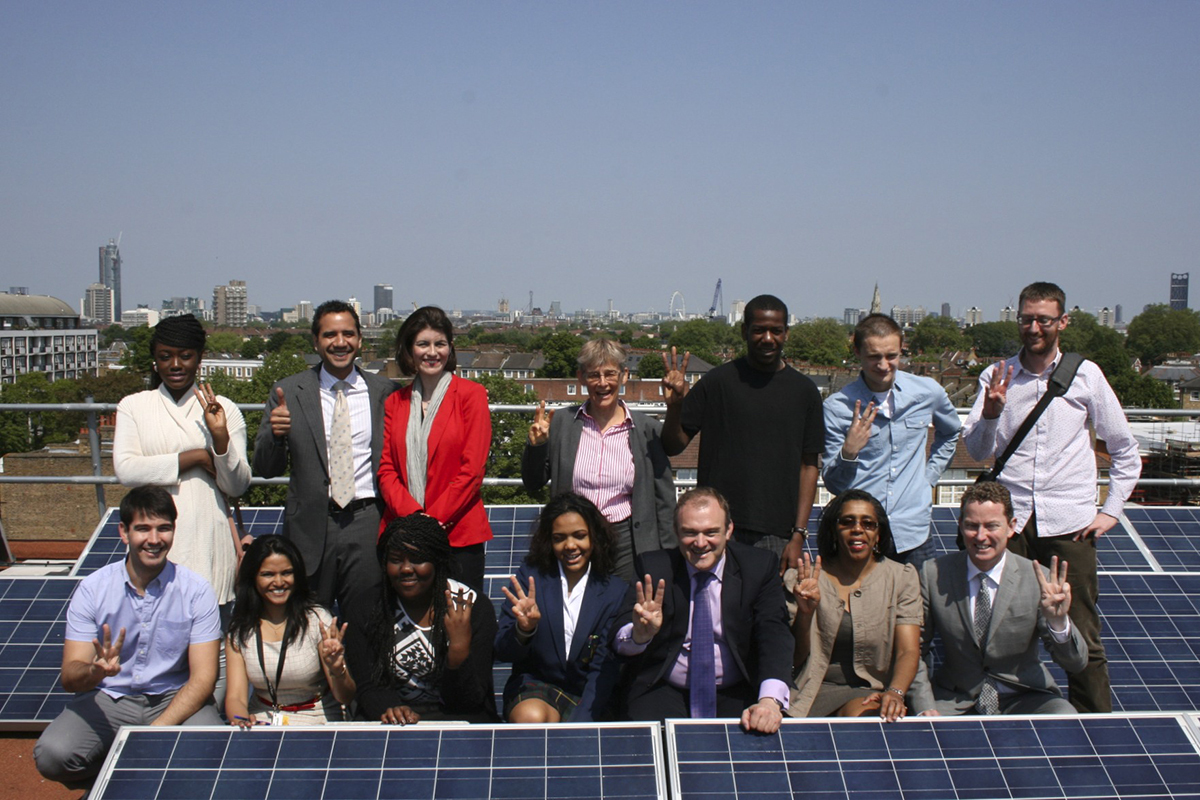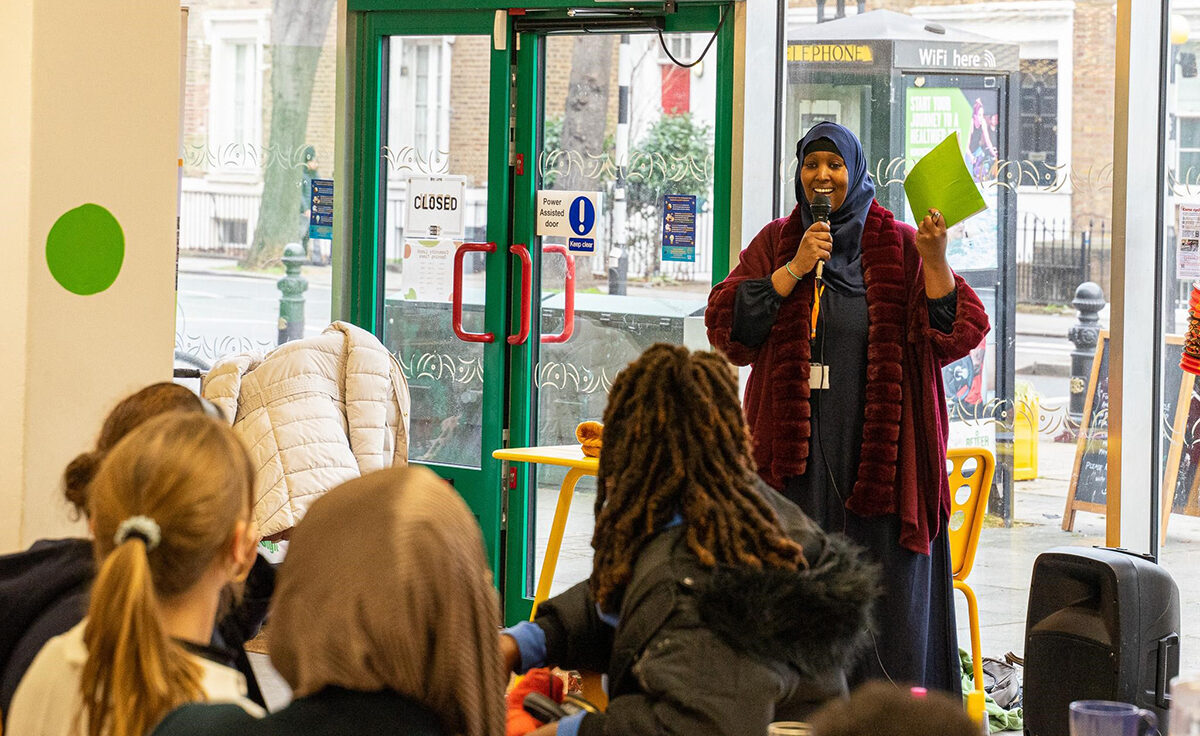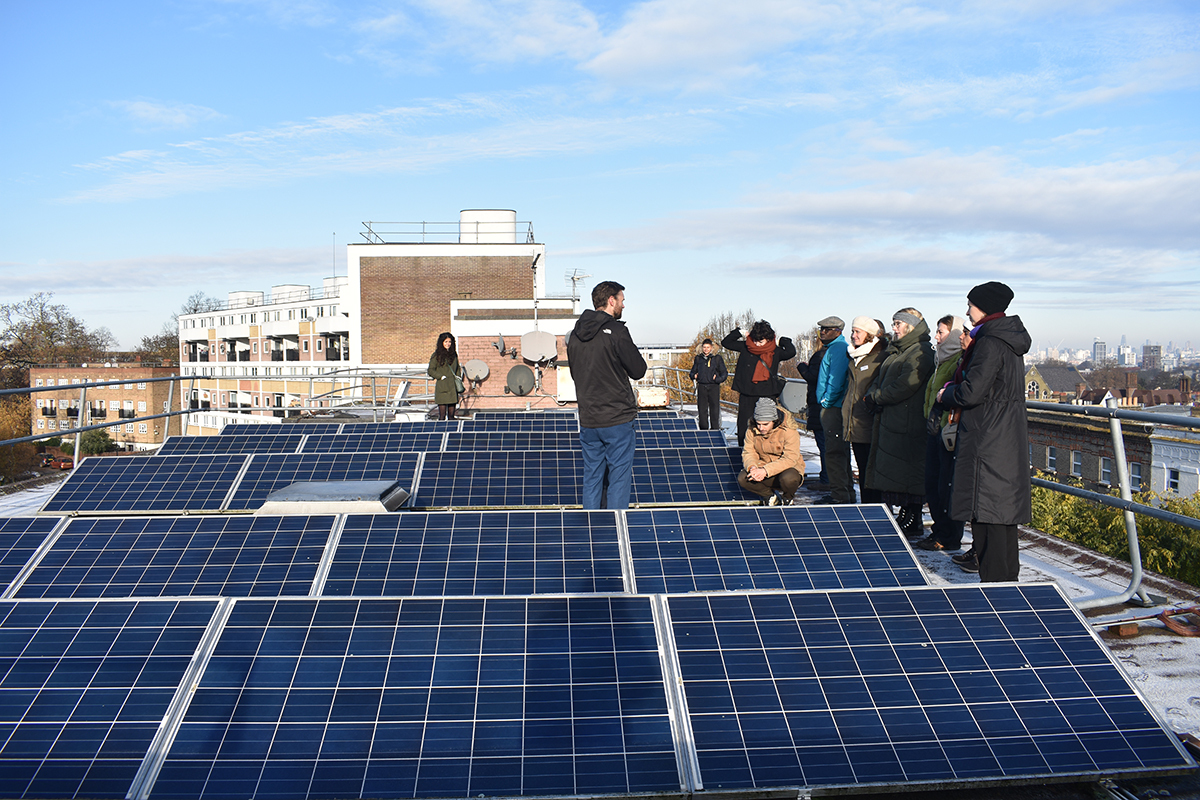Stories
June success story: Fighting energy poverty while empowering Londoners
Community energy is key to action on the climate crisis. It can empower people, boost local economies, and reinvigorate communities. Community-led initiatives play an important role in the transition towards a 100% renewable and just energy future. Success stories of community energy projects can be found all over Europe. At REScoop.eu we want to highlight these stories to further accelerate the movement towards a cleaner and democratic system.
This month, we travel to the United Kingdom, where Repowering London is tackling energy poverty and building a clean, local and affordable energy future.
Energy communities addressing a growing problem
In 2023, around 1 in 10 Europeans struggled to adequately heat their homes - a 54% increase since 2021, largely due to the energy price crisis following Russia’s invasion of Ukraine. Despite European governments spending over 650 billion euros on support measures since September 2021, many households continue facing the stark choice between paying their energy bills and affording basic necessities like food or medicine.
Energy poverty - defined as the inability to afford basic energy services like heating, cooling, lighting, mobility and power to guarantee a basic standard of living - affects various aspects of human flourishing, such as health, well-being, relationships, social inclusion, employment, recreation and education. Individuals experiencing energy poverty may suffer from physical health problems due to deteriorated housing conditions, mental health problems from financial stress, and social isolation due to the associated stigma.
Energy communities, with their democratic approach to energy and strong local ties, are well-placed to tackle energy poverty, ensuring no one is left behind in the energy transition. By collectively owning and governing renewable energy assets, these communities foster community resilience and social cohesion, and empower individuals and neighbourhoods.
Demonstrating a fair energy system
Repowering London exemplifies how energy communities can address energy poverty. This not-for-profit organisation supports some of London’s most deprived communities in taking control of their energy generation and consumption. Since its creation in 2013, Repowering London has installed 840 kWp of solar panels, saved 900 tonnes of CO2, and raised over £200,000 for local community projects.
Rachel Brain, programme manager at Repowering London, describes the value of these initiatives.
“Our community energy projects are tiny demonstrators of how a fair energy system would look like. They set an example for the wider system change we need by showing how local energy cooperatives can offer cheaper electricity through principles of fairness and democracy, unlike traditional suppliers.”

According to the End Fuel Poverty Coalition, energy bills in the UK are currently 60% higher than in winter 2020/21. National Energy Action estimates that 6 million UK households live in fuel poverty. A poll commissioned by the fuel poverty charity at the end of 2023 revealed that 2 million households self-disconnected from energy, 19 million went to bed early to save on heating and lighting, and 5.5 million used ovens instead of central heating to stay warm.
Inclusive energy cooperatives to make energy more affordable
Repowering London‘s journey began in 2011, when a group of Brixton residents, in South London, created a community-owned energy generation system to fight climate change. They successfully launched the Brixton Energy Solar 1, Solar 2 and Solar 3 cooperatives. Two years later, Repowering London was founded to meet the growing demand for similar projects.
Collaborating with stakeholders such as community groups, tenant resident associations, local councillors and local authorities, Repowering London has supported the creation of eight cooperatives that fund, install, and manage rooftop solar projects on social housing estates, schools, and community centres across London. Anyone can become a cooperative member by purchasing shares, contributing to the funding of the solar PV installations. Residents of these buildings can benefit from cheaper electricity.

To ensure inclusivity, local neighbours can become non-investor members for £1, granting them voting rights and co-ownership of the installations. Everyone has an equal voice, no matter how much they have invested.
Profits from selling the energy go into a community fund for projects that benefit the local community, such as youth training programmes, energy advice workshops, and heat or retrofit initiatives. Rachel highlights that while the community energy sector in the UK is relatively homogenous, these cooperatives "have managed to bring in people who aren't the traditional community energy audience."
Reaching and engaging those most in need
Repowering London engages with local representatives and community groups to reach those most in need, such as food banks, kitchens, and gardening groups. Recognising that those who need help the most can be the hardest to reach, Repowering London recruits community members as Energy Champions. These local leaders help grow the cooperatives and ensure the needs and aspirations of local residents are heard and understood.
People in vulnerable situations often self-isolate to hide their precarious living conditions. Energy Champions, with their local knowledge and community ties, build trust and break down barriers for those facing these challenges.

Skills for a just and greener future
Repowering London also addresses energy poverty through capacity-building actions.
They train frontline workers to recognise and address energy poverty - these professionals may interact with those living in energy poverty, but they are not necessarily well equipped to address the issue. Through two different training programmes, they also equip young people with knowledge and skills for their future in the green energy sector. To date, they have trained 155 young people.
Repowering London also organises free energy advice workshops, helping participants manage their energy consumption and understand their energy rights.
A toolkit with advice for energy communities
Repowering London's accumulated knowledge and experience on energy poverty has been compiled into a toolkit developed by the Community Energy for Energy Solidarity (CEES) project. This toolkit, soon available for download on the CEES website, identifies and shares successful actions that uphold energy justice and alleviate energy poverty.
Rachel reflects on the CEES project benefits.
“CEES has been hugely beneficial for us, providing a space to collaborate with and learn from other energy communities addressing energy poverty. We exchanged examples of business models, experiences, and evidence of what works in each context. It has been very inspirational to see that we are part of a bigger movement.”

The toolkit aims to inspire other energy communities across Europe in their fight against energy poverty, offering practical solutions from delivering ‘cosy kits’ to hosting energy cafés and renovating low-income households.